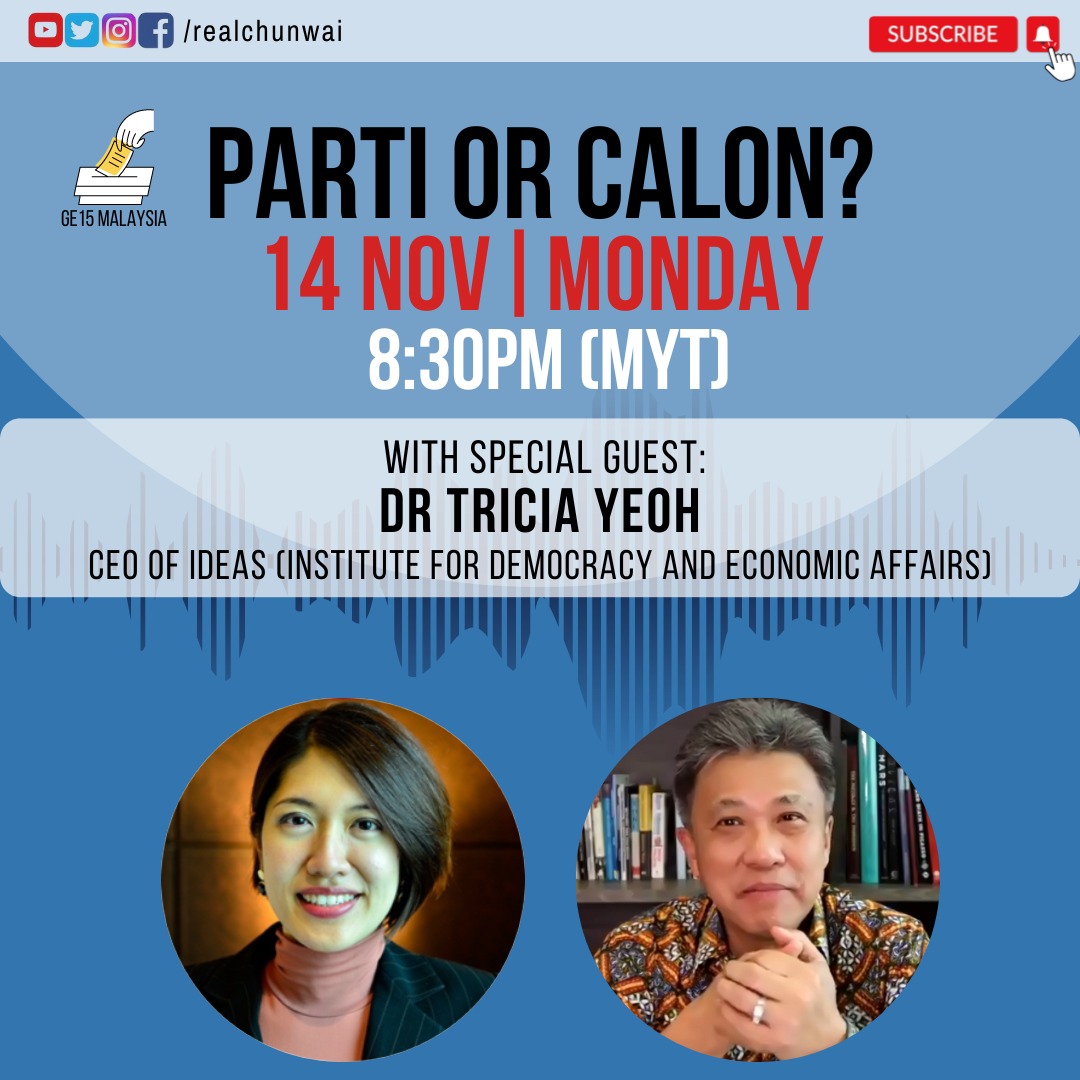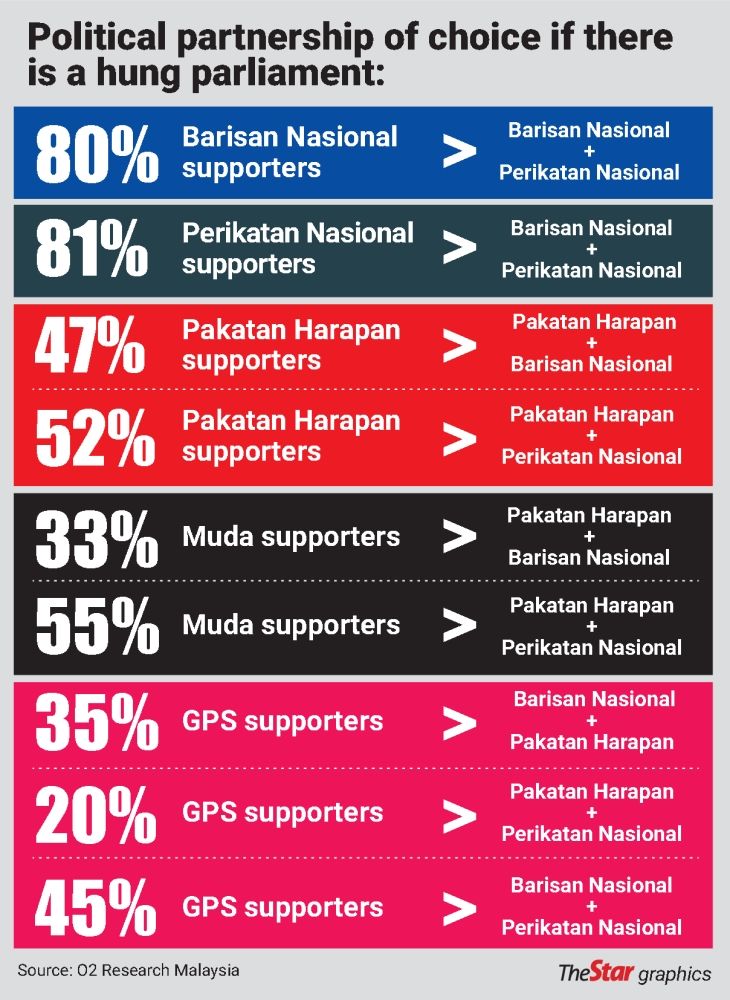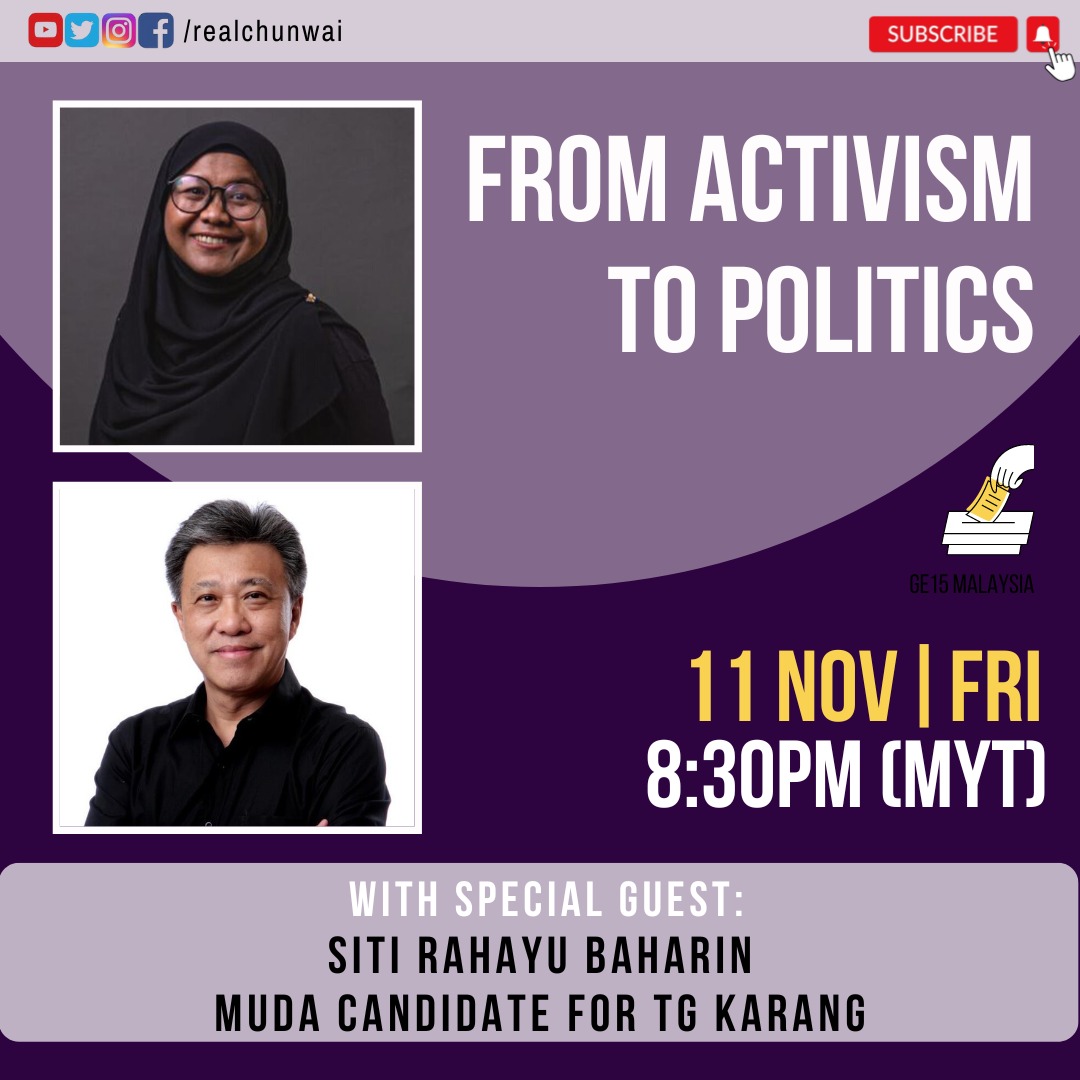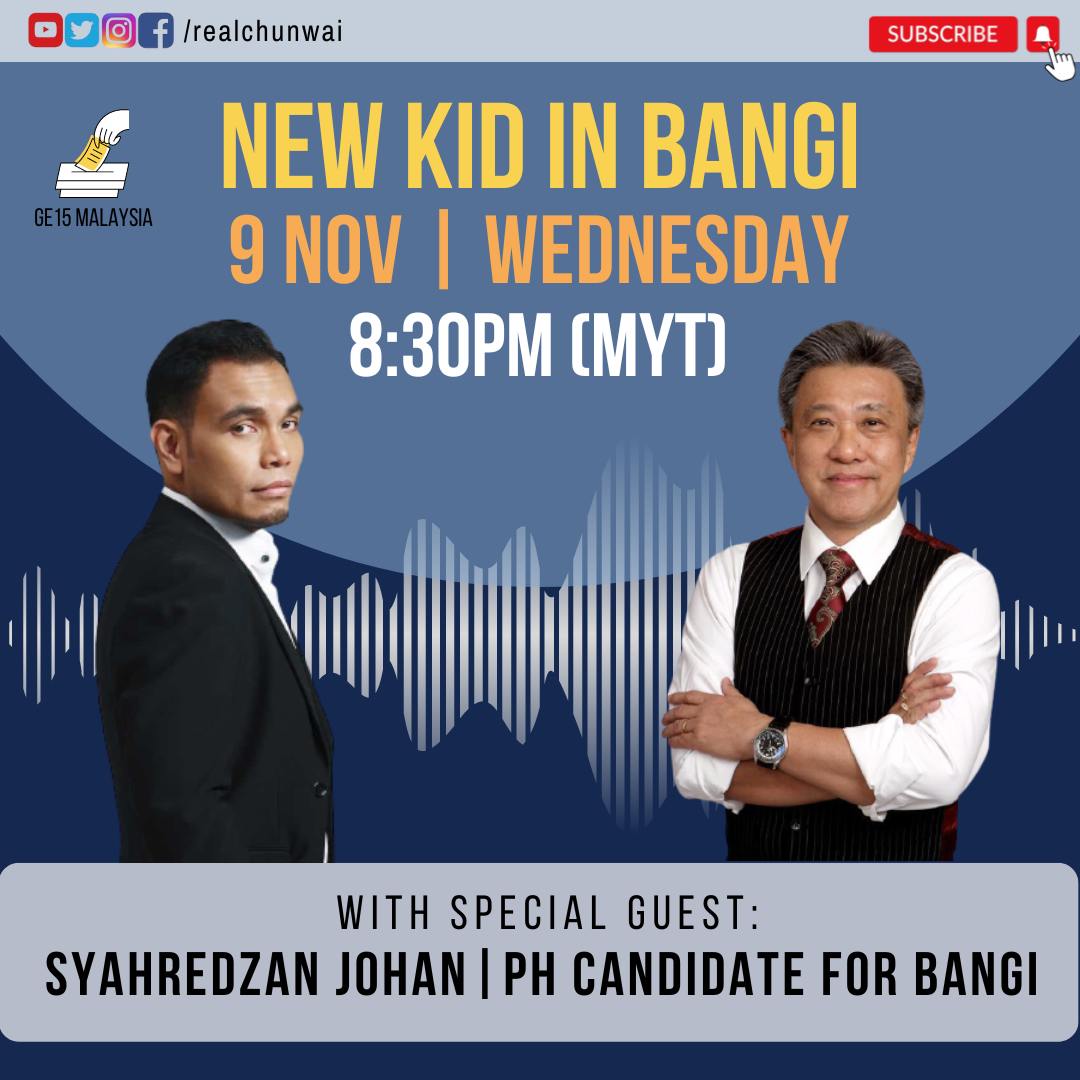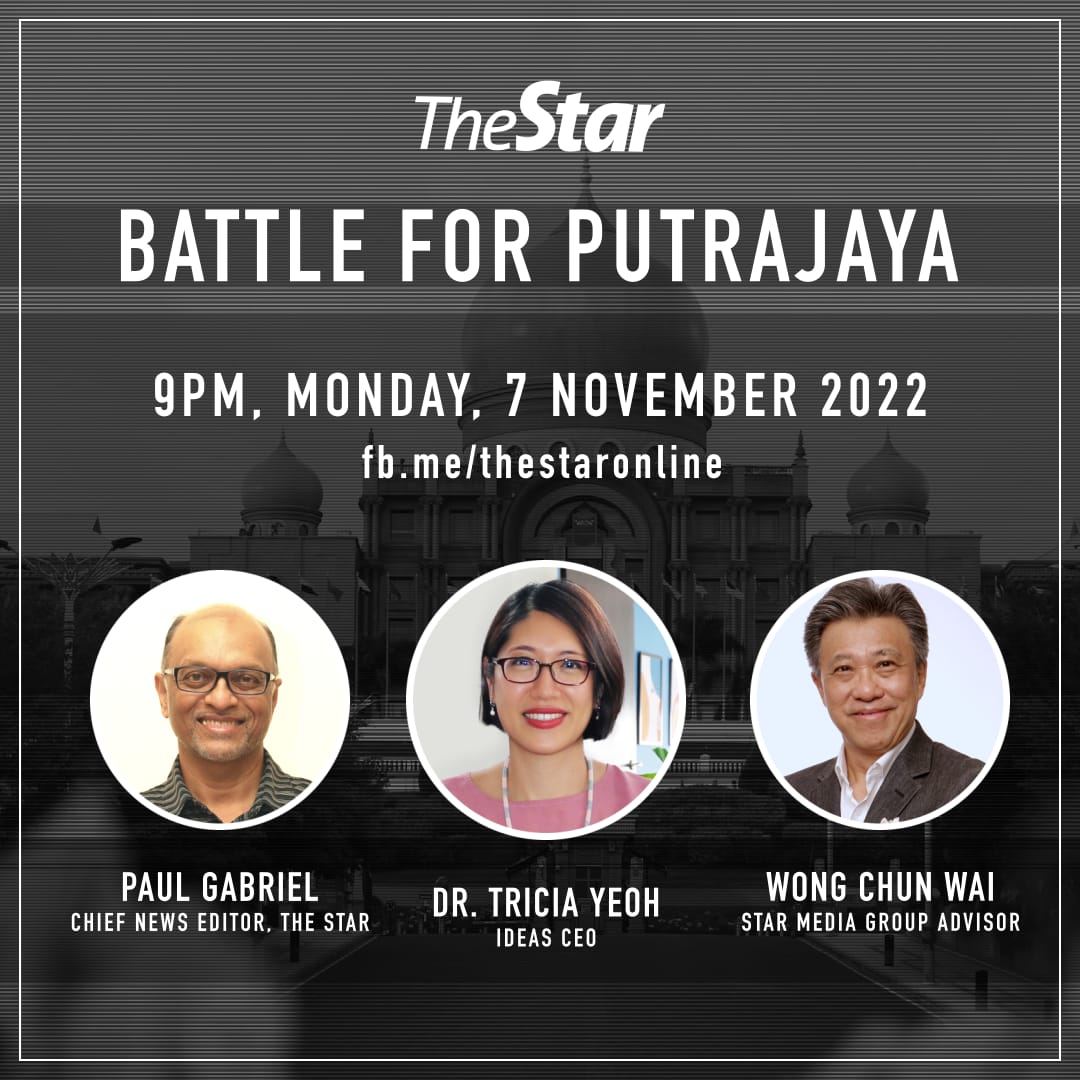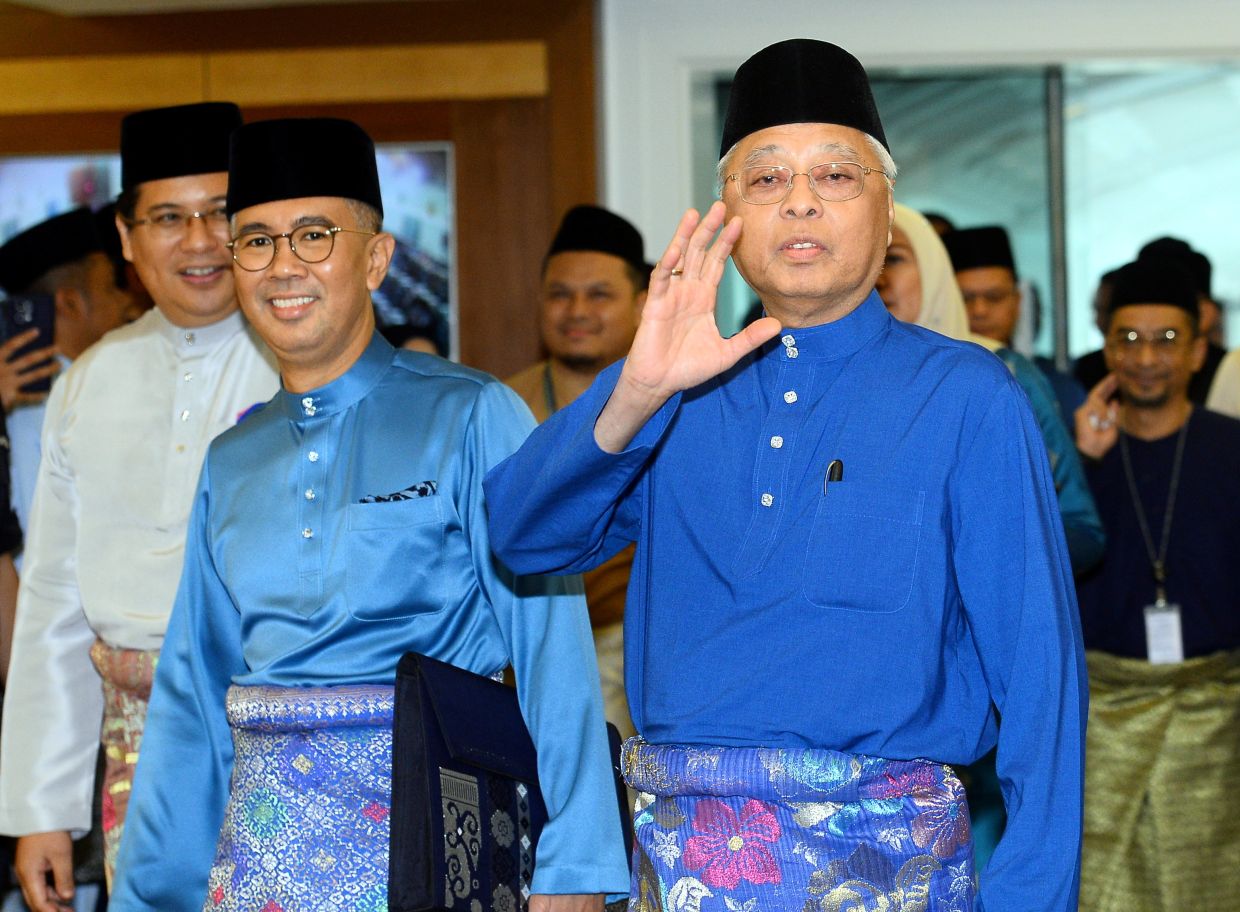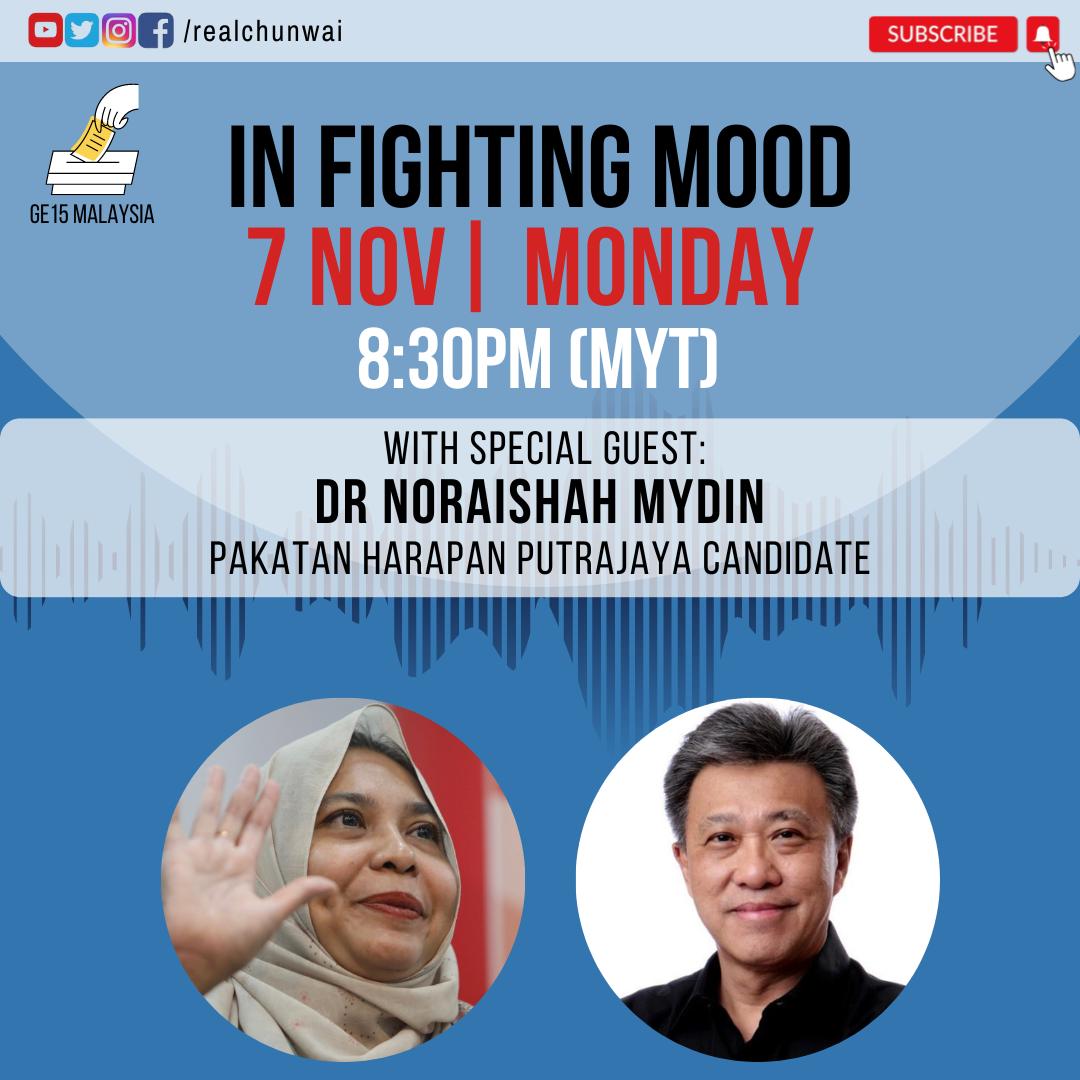AS campaigning for GE15 enters the last lap, the focus will be on the estimated 4.5 million voters said to be still undecided over their choice of which party should lead the next government.
This is certainly a huge bloc as according to a survey by Ilham Centre, they comprise one-fifth of the entire electorate.
While the report is dated Oct 19 and the number of undecided voters may have since declined, it still provides an indication of voters’ behaviour.
In an interview with over 1,622 respondents, 21% were unsure of which coalition they would prefer with 15% undecided on which party to vote for.
And 28% said they had decided which party to support “but are still open to changing their decision”, while an overwhelming 57% had made up their mind.
It also said there were 36% of more than 7.6 million voters who had no allegiance or obsession to any political party.
This would be your friends or associates who have not bombarded your chat groups with messages or videos from the party they were backing.
Or forward fake messages with warnings of purported cheating, claiming voters had been given allocated time to vote when it merely provided an advisory of “masa digalak mengundi.”
You will be surprised at the number of people who actually believed it and angrily shared this message.
While the impartiality of the Election Commission has been questioned in every general election, the fact is that DAP and PAS have retained their states convincingly for decades and toppled a 60-year-old government in GE14.
The focus of the candidates should be to work on these undecided voters as they have the potential to influence the outcome of GE15.
This pattern is possibly prevalent in constituencies such as Sungai Buloh, a PKR stronghold, but because the charismatic and competent Khairy Jamaluddin is a making a bid, it has made some hardcore Pakatan Harapan supporters re-think.
As an anecdote, I can share my experience as someone who lives in the Sungai Buloh constituency.
I have a neighbour, a Malay professional, who has kept flipping his pick every few days and I do not know if he and his family would vote or finally make a firm decision.
A firm Pakatan supporter, it looks like KJ’s foray has placed him in a dilemma.
According to Merdeka Centre, the highest age group of undecided voters were in the 31-40 bracket, at 34%, while those below 19 and between 41 and 50, were at 19% respectively.
The undecided voters were highest in the urban areas with 62%, and rural at 38%. The Malays were the highest in the undecided category at 50% and Chinese at 36%.
The average undecided voter, overall, works in the private sector (44%); with a household income of between RM2,000 and RM3,900 (29%), and those with a secondary education at 40%.
Interestingly, the young voters, according to Merdeka Centre, also showed that those aged 18-20 were more inclined towards issues, candidates and leadership than party allegiance.
Those in the 21-40 group also reflected a similar pattern, with 31% looking at the choice of contenders rather than party.
This is unlike those aged 40 and above, which put candidates at 34% and party at 25%, and issues at only 12%.
Finally, the most crucial factor is voter turnout. According to Merdeka Centre, as of Oct 28, a positive turnout looks possible but among those aged below 30, the figure is only 68%, a decline from 76% as of July 30.
Among the older voters, aged 50 and above, there was a 80% likelihood to vote, with those aged 31-50 at 74%.
Among young voters aged under 30, the Chinese were the lowest with only 38% wanting to vote in comparison to Malays at 75% and Indians at 72%.
These findings are merely a guide and as with past experiences, there will always be errors. But as an indication, the candidates and campaigners have less than a week to convince these undecided voters.


